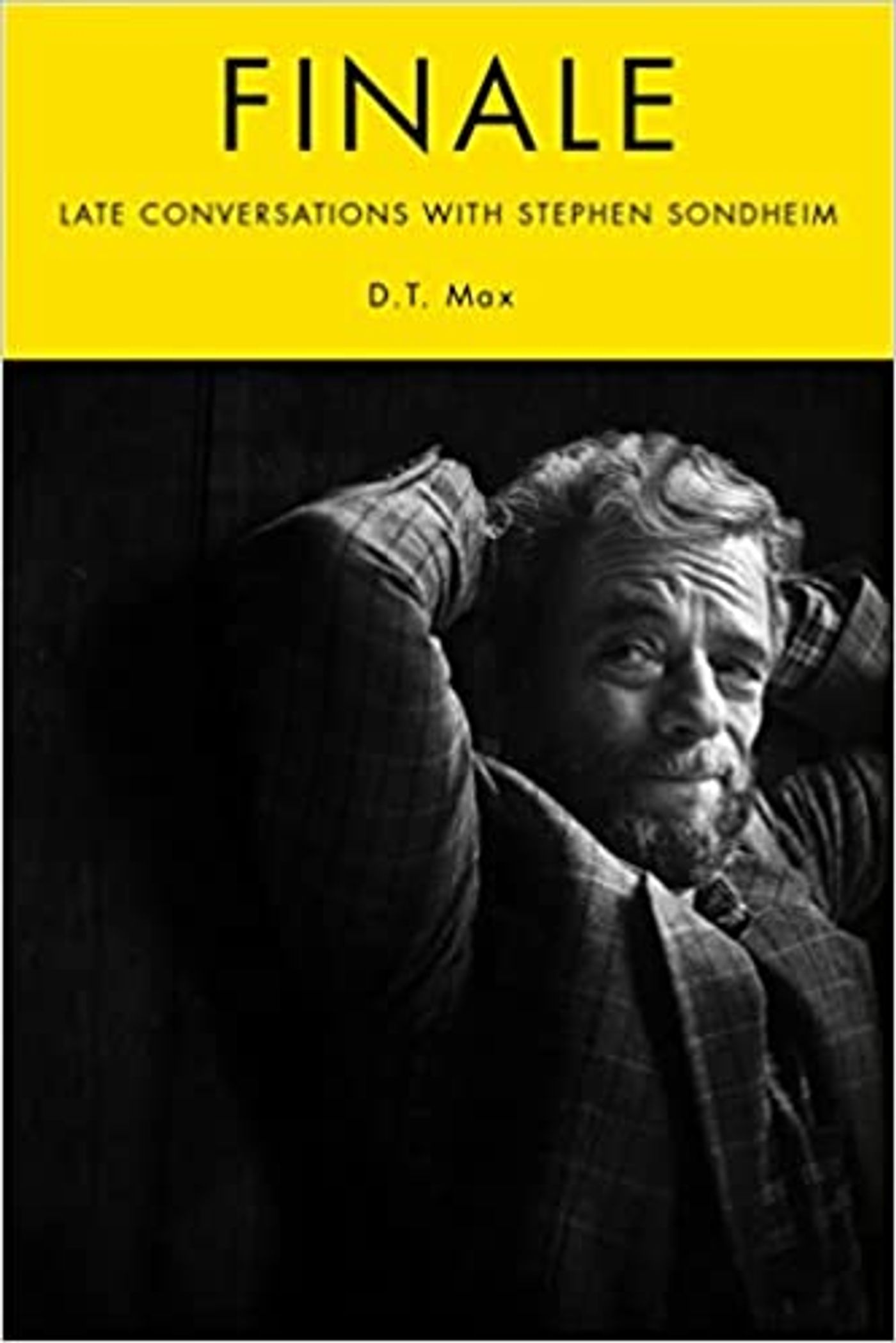Interview: Author D.T. Max Talks Final Conversations With Sondheim in New Book
Max's interviews offer an intimate portrait into the mind of the man who changed modern American musical theater and popular culture forever.
 Longtime New Yorker staff writer-and author of the New York Times bestseller Every Love Story Is a Ghost Story-D.T. Max reveals a Stephen Sondheim rarely seen in public in his new book FINALE: Late Conversations with Stephen Sondheim.
Longtime New Yorker staff writer-and author of the New York Times bestseller Every Love Story Is a Ghost Story-D.T. Max reveals a Stephen Sondheim rarely seen in public in his new book FINALE: Late Conversations with Stephen Sondheim.
Published to coincide with the one-year anniversary of the legendary composer/lyricist's death, Max's interviews offer an intimate portrait into the mind of the man who changed modern American musical theater and popular culture forever.
Purchase FINALE: Late Conversations with Stephen Sondheim HERE!
In BroadwayWorld's interview, D.T. Max reveals how it felt to pick the mind of a genius, how Sondheim hoped to be remembered, and much more.
How does it feel for you to know that you were not only able to spend time with, but have deep conversations with, one of the most influential figures in musical theatre history?
I loved being with Steve (well that's what his friends call him! I still think of him as Sondheim) I was also amazed to be there. It was like, hey, how about you go by Mozart's town house and chew the fat.
What was the most surprising thing you learned about Sondheim, or most surprising thing you took away from your conversations with him?
The first surprise was what he was like. I've been with geniuses before-I've been writing profiles, often for The New Yorker, for twenty five years-but he was completely unassuming. He was--dare I use the word?-- nice to you. He looked after you and made you feel you weren't just an attachment to an iPhone there to record a great person's sayings.
Some other surprises. I was astonished how much he still resented-hated isn't too strong a word--his mother. I mean, she'd been gone since 1992 and there we were in 2018 and if she'd walked in, I swear he would have thrown one of those fancy wine glasses we were using at her.
Creatively I was amazed to hear that in the '10s he'd been working on what sounded like a brilliant musical called All Together Now about the many voices inside anyone's head-our internal conflicts--and put it aside because...are you waiting for this?...Disney came out with Inside Out. I mean, c'mon.
How do you think Sondheim himself wanted to be remembered?
He absolutely did want to be remembered. That was clear. He was a show-biz creature, highbrow division. But, yes show-biz. That was why he was so interested in performance. He wanted his musical on stage, not in the history books. He wanted to be remembered as the composer lyricist of the show you just saw and loved.
What do you hope that readers take away from your book?
I want the reader to see Sondheim as a human being rather than a cardboard cut-out. The book is five long interviews over time and if it works it's almost like seeing someone in a movie instead of in a still photograph. He's like us. At different times in our conversations he's happy, grumpy, bashful. All the dwarves, I guess except Sneezy and of course Doc. Well not really Sleepy either. So that's four dwarves! Wait, not Dopey-at 87 he was as sharp as anyone I've ever met. So three dwarves!
Do you have anything else you'd like to share?
It was fun. And it was an honor. And I'm sad he's gone.
Videos

